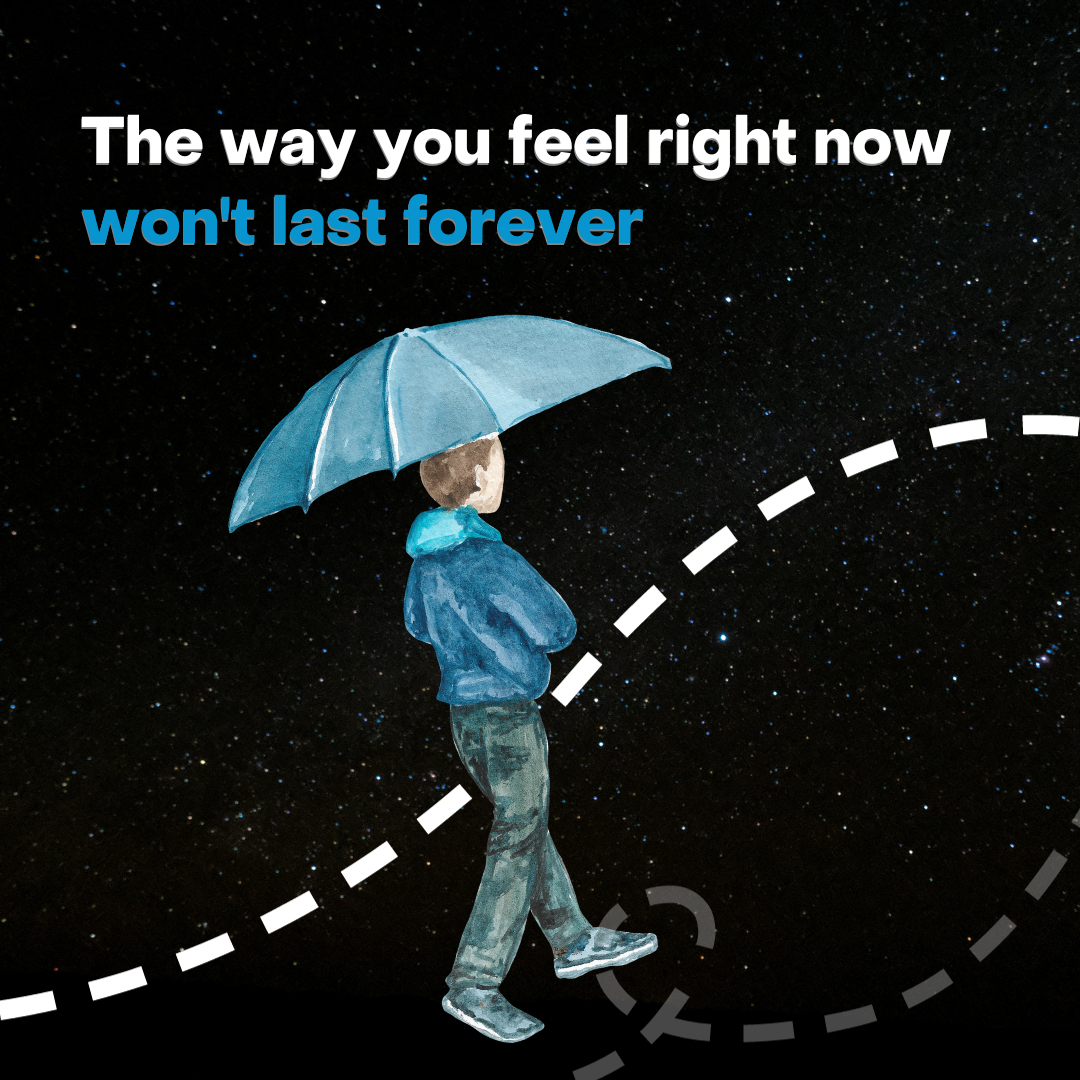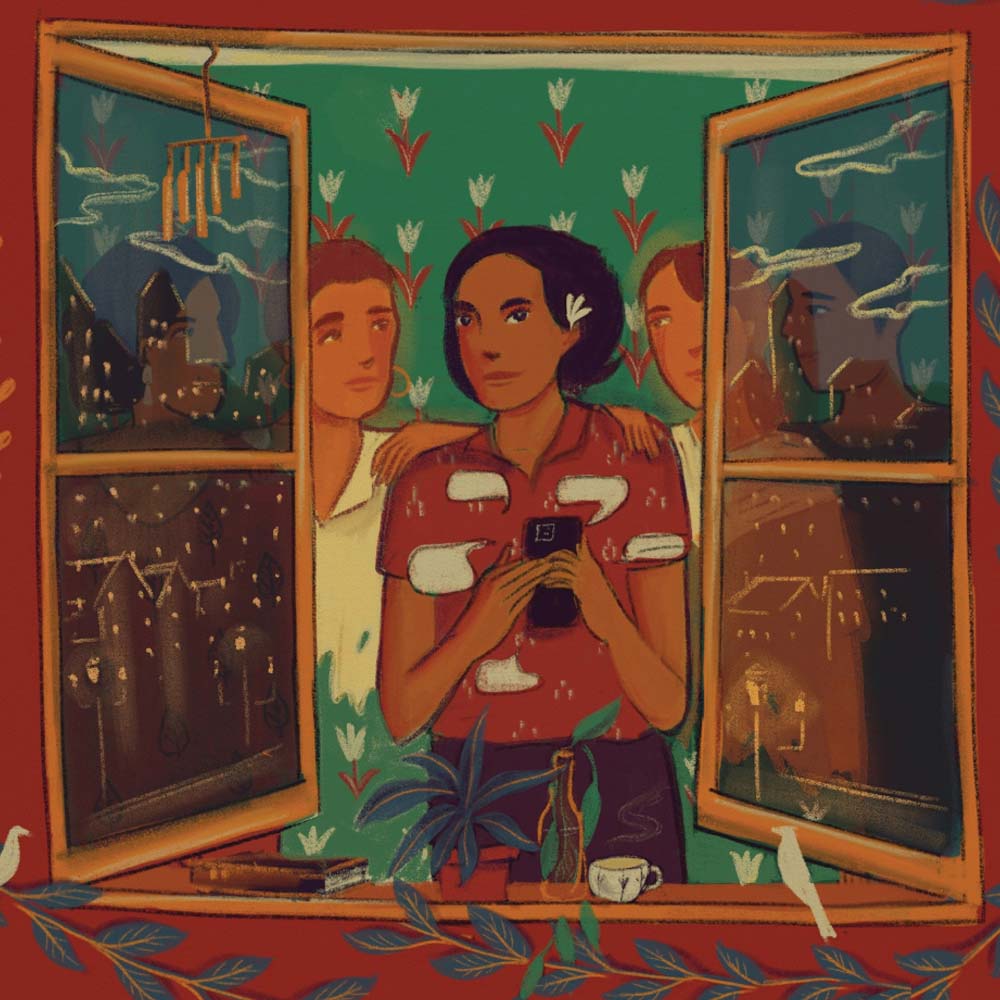Main navigation



Hello, I'm Ahan, and I was born and raised in Delhi. I did my schooling in Delhi and now pursuing my graduation from Delhi University. As an only child just like any other, I wanted to live my life, explore, and just be myself but things started to get out of hand during my school time. I was in 9th grade when I had my first anxiety attack, I didn't know what to do, so I resisted it but I couldn’t resist it for long. I opened up to my parents about it and just like any other household, instead of taking me to a mental health professional they tried everything to get it off. In my family, since everyone has achieved so many things in their life, they took me to my relatives, wherein they gave me numerous pieces of advice like, "What is happening to you, do not be like this, don't talk about this with everyone, what will people think about you, Humare family main kabhi kisi ka confidence down nahi hua then tumhara kyu ho raha hai (No one in our family has been low on confidence then why you?)." I listened to it but when I told them I needed to see a mental health professional they ignored my point and told me to cut off with them. I struggled a lot during my school times, due to low confidence and doubting myself.
When COVID came into our lives, we were totally isolated, locked up in our homes. My mental health got worse and my anxiety increased. I used to get panic attacks and cry alone during nights, hoping the situation would end. After my school reopened I would feel socially anxious. I would not reply to emails, or messages, or be active on social media. I was in 12th grade, when I sent a distressing message to my school counselor, that I did not want to live anymore, as I was a minor back then, my school informed my parents and it was at that moment that I decided to open up to my family, seeing me in emotional distress and not knowing what to do, they took me to a psychiatrist. They listened to my problems and prescribed me antidepressants for my depression. They were helpful in stabilizing my mood, increasing my confidence, and stopping vulnerable thoughts.
However, I also faced some side effects such as difficulty sleeping, eating, feeling numb, and not being able to cry. When the side effects got worse this was the time wherein I decided to seek help from a therapist. I had taken psychology in 11th and 12th grade, I knew how therapy worked but didn't know how to open up, or how to confide in the therapist, I had questions on my mind "Will it work out for me?" Trust, confidentiality issues, everything was hovering around in my mind but after a few sessions with my therapist, I started to feel better and started to talk about my issues. It was my therapist who made me feel understood that my “FEELINGS ARE VALID”. I found my safe place wherein I discussed all my problems with her and she was there for me during my toughest and hardest moments. often it has been seen in a country like India wherein we are told to hide our feelings, especially in the case of men.
I have heard since childhood that a man is considered weak if he shows his emotions, and feelings, or is crying. "Act like a man!", we are told to repress our feelings but it was my therapist who made me understand that it's absolutely alright to cry and let my emotions out, FEELING MY FEELINGS helped me more to understand myself, in fact, the more we feel our feelings it emotionally matures us. Depression made me feel like I was not worth it, I felt trapped in my body and felt as if someone else was doing all the work for me and not me, but working out with my therapist, I started to see a lot of changes in myself. As told by my therapist I started to engage in self-care and self-love.
Self-love is a fundamental concept related to self-compassion, self-acceptance, and nurturing a positive and healthy relationship with oneself. It involves treating oneself with kindness, understanding, and care. Here I accepted myself and started to work on myself, my weaknesses, my goals, and setting personal boundaries and it really helped me and is helping me at the moment. But the question arises here "How to engage in the practice of self-love and self-care?" Engaging in the practice of self-love and self-care is essential for your overall well-being and mental health. It's a journey of nurturing your physical, emotional, and psychological needs.
Here are some steps to get started:
1) Understand the Importance: Recognize that self-love and self-care are not selfish but necessary for your overall health and happiness. When you take care of yourself, you're better able to care for others.
2) Self-Compassion: Treat yourself with the same kindness and understanding that you would offer to a friend. Understand that it's okay to make mistakes and have flaws. Practice self-compassion by not being too hard on yourself.
3) Set Boundaries: Learn to say "no" when you need to, and don't overcommit yourself. Setting boundaries helps prevent burnout and allows you to prioritize your well-being.
4) Prioritize Self-Care Activities: Make a list of activities that make you feel relaxed, happy, and fulfilled. This can include reading, taking a bath, practicing yoga, going for a walk, or simply listening to music. Schedule regular self-care time into your routine
5) Exercise: Engage in regular physical activity that you enjoy, whether it's dancing, hiking, swimming, or going to the gym. Exercise releases endorphins, which can boost your mood.
6) Sleep: Ensure you get enough sleep. Establish a consistent sleep routine and create a comfortable sleep environment.
7) Practice Positive Self-Talk: Challenge negative thoughts and replace them with positive affirmations. Focus on your strengths and achievements rather than dwelling on your shortcomings.
8) Cry: whenever you feel you want to cry just let your emotions and feelings out, it's totally okay to cry, crying allows us to unburden ourselves, and it gives you a sense of relief as well as process the situation better
9) Journaling: Keep a journal to reflect on your thoughts and feelings. Writing can be therapeutic and help you gain insights into your emotions.
10) Seek Support: Don't be afraid to ask for help or talk to a therapist or counselor if you're struggling with self-love or mental health issues. You don't have to go through it alone.
Today, I am doing much better. I still get those flashbacks when I was about to attempt suicide. I actively negotiated with my therapist and parents, who were very supportive in my fight against depression I know that taking that first very huge step of asking for help is quite difficult for any individual but we need to understand that individuals going through a tough time are in need of help they are individuals who exhibit remarkable bravery as they navigate their unique challenges. They face adversity with strength and often go unnoticed by those who may not fully grasp the complexities of their experiences. It is crucial that we extend our understanding and support to them, rather than perpetuating negative stereotypes.
By looking beyond the labels that society imposes, we can begin to see the true essence of each person. Each individual has their own story, their own struggles, and their own journey towards healing. It is through open dialogue, education, and fostering a supportive environment that we can dismantle the barriers created by societal prejudice. Seeing a therapist really helps, I am still taking therapy sessions. There are days that are hard but instead of giving up, I decided to show up and seek help, in the hour of crisis or if anything is bothering you. We all have our inner battles, and struggles and feel disconnected or not able to catch up, or staying out of routine, it is absolutely alright, but always remember that there is someone out there for you who deeply cares about you, and is ready to listen to you and ready to help you out.
I am here because of my therapist, my therapist saved my life. Now as I am on the path to recovery, I am helping people and young adults/adolescents, creating awareness to reach out to a trusted professional. It was my therapist who created an impact on me and I continue to thrive and help in creating awareness of mental health. Especially men's mental health, I completely understand the fact that I am not a licensed psychologist but, at my level, I am trying my level best to promote men's mental health. I encourage people, my friends, and teens like me to vent out whatever they are feeling, go to therapy, and seek help. I believe there is a light at the end of the tunnel. This is the reason I wanted to share my story. I hope listening to my story will really give you hope and you will find a safe place where you can discuss whatever you have been dealing with, trust me it gets better and it will get better, you will be in a better place. The way you feel right now won't last forever. Be kind to yourself and you are worth it!
how helpful was this page?
Feedback helps us improve our content and resources to make the experience better for everyone.






